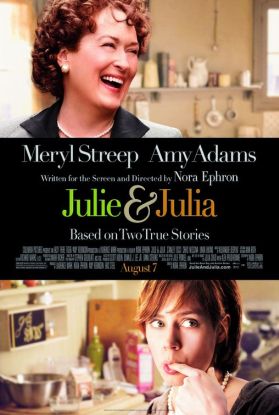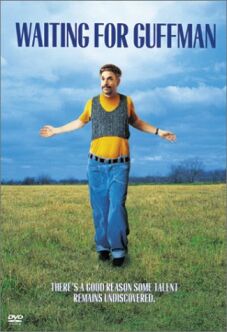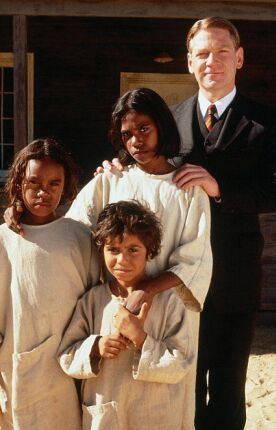Julie & Julia
The one slightly sour note in Nora Ephron’s cloyingly sweet Julie & Julia comes near the end of the film when one of our two heroines, Julie Powell (Amy Adams), has become a hit with the public — or at least enough of a hit to realize the prospect of the book deal which will ultimately culminate in this movie. Julie’s Cinderella-story begins as, foiled of her literary ambitions, she is patronized by her more successful female friends and ends when she finds an audience through the gimmick of a blog devoted to her year spent preparing all 524 recipes from the cookbook of the movie’s other heroine, Julia Child. This success is only slightly marred by the news that the real Julia Child, shortly before her death at the age of (not quite) 92 in 2004, had told a reporter that she didn’t like her! The old gal had thought her blogging namesake, so we are told, lacking in respect. Well, what can you say? She was very old, if not senile, and didn’t really know the younger woman. She can’t have read her whole blog anyway.
Besides, Julie still had the invisible Julia, the Julia of Mastering the Art of French Cooking, whom she had been spiritually communing with for a year and whom the New York Times reporter Amanda Hesser, playing herself, rather unkindly called her “imaginary friend.” What need has she of the real Julia? Julie’s friend reassures her: “The one in your head is the only one that matters.” This is true in one way. The one in her head is the only one that matters to her success as a writer and semi-celebrity — now, with the making of this movie, presumably a genuine celebrity too. The movie and the movie’s audience both have their own mental Julia as well, and they have got Meryl Streep, no less, to play her. Put this imaginary Julia together with the one in Julie’s head and you can go a long way towards producing the sort of feel-good movie that is likely to sell. And this one is selling too.
But a bit more of the real Julia might have made for a better movie by boosting its reality quotient. As it is, its popularity is owing partly to its ability to plug in, as it were, to so many of the culture’s live nerve centers, including the lingering grief over the terror attacks of September 11th, 2001 (Julie’s day job involves her in counseling grieving or angry members of the public over the telephone), the foodie craze which Mrs Child herself did so much to propagate, the elusive promise of the fame and riches to be won in the blogosphere, the romance of Cold War liberalism — a subject to which I shall return in a moment — and, above all, the romance of second wave feminism. But mostly it is successful, I think, because it has had the wit to make itself, primarily, into a portrait of two exceedingly happy marriages, Julia’s with her husband, the American diplomat Paul Child (Stanley Tucci) and Julie’s with the endlessly obliging and supportive Eric (Chris Messina).
I’m old enough to remember the saying, once sagely quoted by mothers to their daughters, that the way to a man’s heart is through his stomach. Nowadays, of course, you could be rhetorically crucified for giving voice to any such un-PC proverb in the wrong quarters, and yet it is unmistakably a part of the subtext here. How could it not be when you put two such uxorious husbands in juxtaposition with two such fantastically industrious and creative cooks? Julie’s and Eric’s marriage goes over a bit of a bump, it’s true, though so perfectly loving and compatible are they in every other way that it’s a bit hard for the viewer to understand quite what the issue is when Eric moves out of the apartment they share above a pizzeria in Queens and into his office for a couple of days. He doesn’t like being called a saint, the poor thing. But what does it matter? We know they will soon be together again, as indeed they are — and more lovingly than ever.
Julia and Paul, in the scenes from the 1940s and 1950s with which Julie and Eric’s scenes are intercut, never even quarrel. Theirs is a true marriage of minds, and hearts, as we see when Paul proposes a toast to Julia at a Valentine’s Day supper — sumptuously prepared, of course, by herself — by saying that she is “the butter to my bread and the breath to my life.” As you can see, it’s not just the food that’s designed to make a largely female, middle-class audience swoon. And then there’s that matter of the twin romances, of Cold War liberalism and of second wave feminism. For it turns out that Paul Child is a (sort of) victim of McCarthyism, while Julia is a victor over the crushing ennui that, nowadays, everyone knows was the lot of the oppressed housewife in those benighted years before Betty Friedan’s Feminine Mystique first called our attention to it in 1963. Cooking is as much the road to professional success for Julia, who takes it up because she’s bored as the stay-at-home wife of a diplomat, as it is for Julie. Contented husbands turn out to be a by-product.
These lives well-lived — and even more well-enjoyed — are also an affirmation of liberal confidence in the gospel of good intentions. Just as the political realities to which McCarthyism was one — and by no means the most important — response are of no interest to Ms Ephron, or to the bien pensant Julia Child she has given us here, neither are the more disturbing aspects of the celebrity culture and the cultural pervasiveness of the publicity industry by means of which Julie Powell, like so many others, has risen to stardom. Of course, one doesn’t want to begrudge her that stardom. More Powell to her. It took some brains to have thought up the Julia Child gimmick in order to get herself noticed and so swiftly elevated into the media stratosphere, even though Julia Child herself seems not to have thought so much of being reduced to a gimmick. But the idea that fame and fortune attend the nice and need have nothing to do with genuine achievement is mere sentimentality.
Discover more from James Bowman
Subscribe to get the latest posts to your email.






